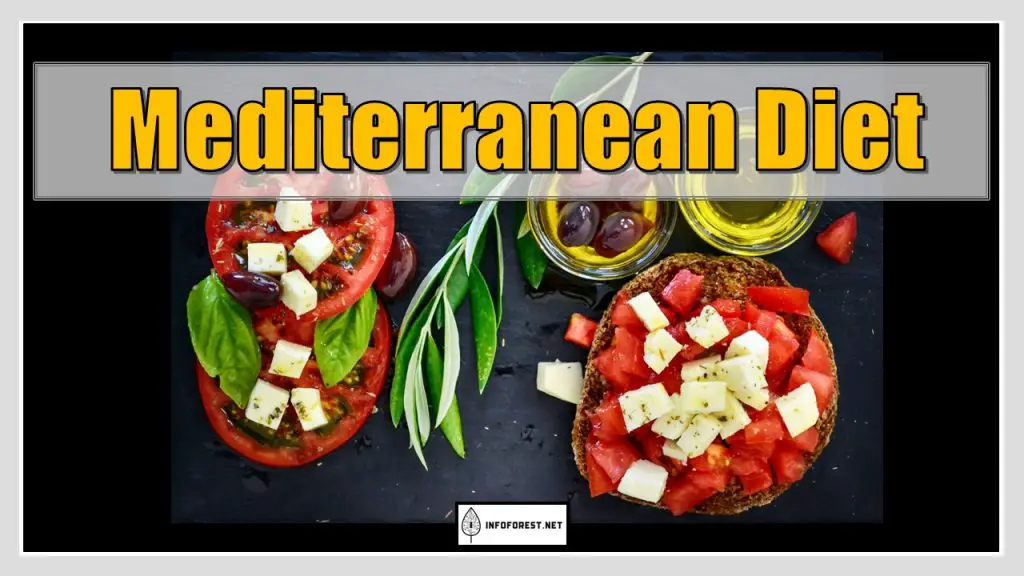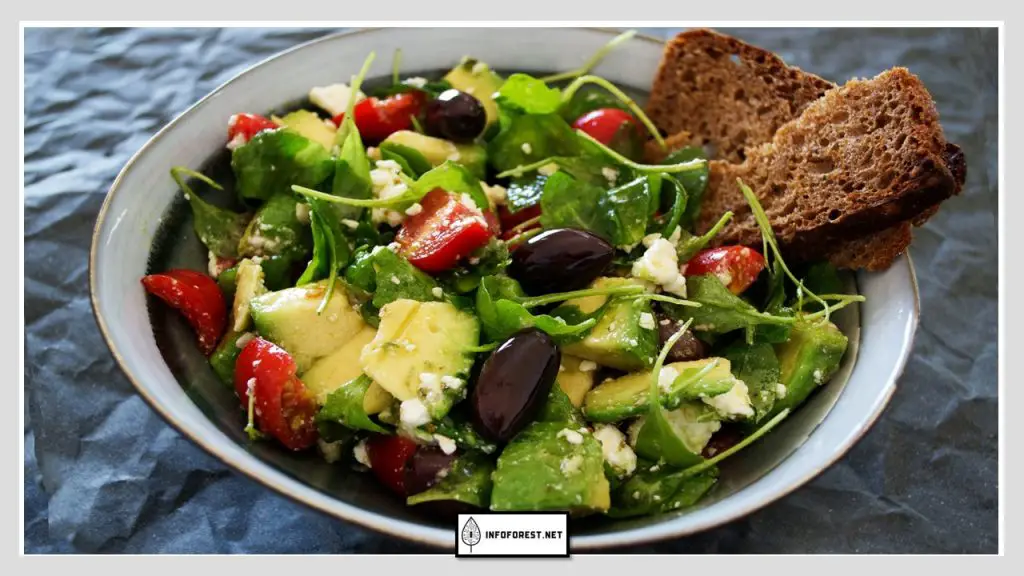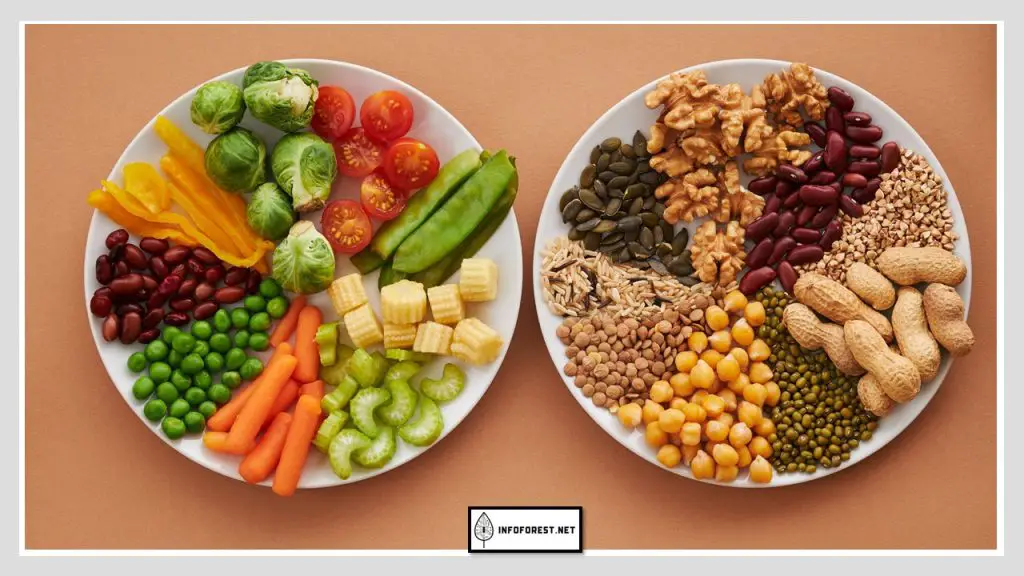
The Mediterranean diet is a way of eating that is inspired by the traditional dietary habits of the people living in the Mediterranean region. It emphasizes the consumption of whole, minimally processed foods such as fruits and vegetables, whole grains, legumes, nuts and seeds, and olive oil, and includes moderate amounts of fish and poultry, as well as limited amounts of dairy products and red meat. This dietary pattern has been shown to be associated with numerous health benefits, including a reduced risk of cardiovascular disease, diabetes, and certain types of cancer. Overall, the Mediterranean diet is a healthy and sustainable way of eating that can be easily incorporated into daily life.
Potential benefits of the Mediterranean Diet
The Mediterranean diet has been shown to have several potential health benefits, including:
- Heart health: The Mediterranean diet has been linked to a reduced risk of heart disease and stroke, thanks in part to its emphasis on healthy fats from olive oil and its high content of antioxidants from fruits and vegetables.
- Weight management: The Mediterranean diet has been shown to promote weight loss and prevent weight gain, in part due to its focus on whole, nutrient-dense foods and limited amounts of processed foods.
- Cognitive function: Studies have suggested that the Mediterranean diet may help improve cognitive function and reduce the risk of age-related cognitive decline.
- Diabetes prevention: The Mediterranean diet has been linked to a reduced risk of type 2 diabetes, due to its emphasis on whole, nutrient-dense foods, healthy fats, and limited amounts of added sugars.
- Cancer prevention: The Mediterranean diet has been associated with a reduced risk of certain types of cancer, such as breast and colon cancer.
- Improved gut health: The Mediterranean diet is rich in fiber, which helps promote gut health and prevents conditions such as constipation and diverticulitis.
- Mental health: The Mediterranean diet has been linked to improved mood and reduced symptoms of depression and anxiety.

How to follow Mediterranean Diet
Here are some tips for following a Mediterranean-style diet:
- Eat plenty of fruits and vegetables: Aim for at least 5 servings of fruits and vegetables per day.
- Include whole grains: Choose whole-grain bread, pasta, and rice instead of processed white varieties.
- Use healthy fats: Make olive oil your primary source of fat and use it for cooking and dressings. Also, include nuts, seeds, and avocado in your diet.
- Eat fish regularly: Incorporate fish, such as salmon, sardines, and anchovies, into your diet at least 2-3 times per week.
- Limit red meat: Keep red meat consumption to a minimum and opt for poultry and legumes instead.
- Include dairy: Choose low-fat dairy products, such as yogurt and cheese, in moderation.
- Drink wine in moderation: If you drink alcohol, limit yourself to one glass of wine per day.
- Cook with herbs and spices: Use herbs and spices to add flavor to your meals instead of salt and sugar.
- Limit processed foods: Avoid processed snacks and foods high in added sugars and unhealthy fats.
By following these guidelines, you can adopt a Mediterranean-style diet that is healthy, delicious, and sustainable for the long term.
We also invite you not to miss our other popular articles such as:
Difference Between Rose Gold and Yellow Gold– ChatGPT–Difference between left and right Twix–Difference Between Eastern Time Zone and Central Time Zone–Difference Between Capitalism and Communism– Difference Between EST and EDT–How many weeks in a Year– Difference Between Evening and Afternoon – Democrat vs Republican

Foods to eat
Here is a list of foods that are typically included in the Mediterranean diet:
- Fruits and vegetables: Tomatoes, bell peppers, eggplant, zucchini, leafy greens, berries, oranges, lemons, figs, and olives
- Whole grains: Whole wheat bread, pasta, rice, quinoa, barley, and bulgur
- Legumes: Lentils, chickpeas, beans, and peas
- Nuts and seeds: Almonds, hazelnuts, walnuts, sunflower seeds, and pumpkin seeds
- Healthy fats: Olive oil, avocado, and nuts
- Fish: Salmon, sardines, anchovies, and mackerel
- Poultry: Chicken and turkey
- Dairy: Low-fat yogurt, cheese, and milk
- Herbs and spices: Basil, oregano, thyme, rosemary, and garlic
- Red meat: Limited amounts of lean cuts of beef and lamb
- Wine: Small amounts of red wine in moderation
These foods can be combined in a variety of ways to create delicious, nutritious meals that are consistent with the Mediterranean diet.
Foods to limit
Here is a list of foods that should be limited or consumed in moderation when following the Mediterranean diet:
- Processed foods: Snacks, desserts, and other processed foods high in added sugars and unhealthy fats
- Red meat: Consume red meat only in limited amounts, and opt for poultry, fish, and legumes instead
- Butter and margarine: Choose healthy fats like olive oil instead
- Refined carbohydrates: White bread, pasta, and rice, as well as sugary drinks and snacks
- Salt: Limit the amount of salt in your diet and use herbs and spices to add flavor to your meals
- Fried foods: Fried foods are high in unhealthy fats and should be limited
- Alcohol: Limit alcohol consumption, especially if you drink beer, spirits, or other types of alcohol in addition to wine.
By limiting these foods, you can maintain a balanced and healthy diet that is consistent with the principles of the Mediterranean diet.

Sample menu
Here is a sample Mediterranean-style menu for a day:
Breakfast:
- Whole grain toast with avocado, cherry tomatoes, and a drizzle of olive oil
- Greek yogurt with honey and berries
Lunch:
- Grilled salmon with a side of quinoa and roasted vegetables (e.g. bell peppers, eggplant, and zucchini)
- Mixed greens salad with cherry tomatoes, cucumber, feta cheese, and a lemon-olive oil dressing
Snack:
- A handful of almonds and a piece of fruit (e.g. an apple or a pear)
Dinner:
- Spaghetti with a tomato and basil sauce
- Grilled chicken with a side of roasted potatoes and steamed green beans
- A glass of red wine
Dessert:
- Fresh fruit (e.g. sliced melon or berries) with a drizzle of honey
This menu provides a variety of healthy, flavorful, and nutrient-dense foods that are consistent with the principles of the Mediterranean diet. You can use this as a starting point and customize it to your individual taste preferences and dietary needs.
Shopping list for Mediterranean Diet
Here is a shopping list for a week’s worth of Mediterranean-style meals:
Fruits and vegetables:
- Tomatoes
- Bell peppers
- Eggplant
- Zucchini
- Leafy greens (e.g. lettuce, spinach, kale)
- Berries (e.g. strawberries, blueberries, raspberries)
- Oranges
- Lemons
- Figs
- Olives
- Avocado
- Potatoes
- Green beans
Whole grains:
- Whole wheat bread
- Whole grain pasta
- Brown rice
- Quinoa
- Barley
- Bulgur
Legumes:
- Lentils
- Chickpeas
- Beans
- Peas
Nuts and seeds:
- Almonds
- Hazelnuts
- Walnuts
- Sunflower seeds
- Pumpkin seeds
Healthy fats:
- Olive oil
- Avocado
Fish:
- Salmon
- Sardines
- Anchovies
- Mackerel
Poultry:
- Chicken
- Turkey
Dairy:
- Greek yogurt
- Low-fat cheese
- Low-fat milk
Herbs and spices:
- Basil
- Oregano
- Thyme
- Rosemary
- Garlic
Red meat:
- Lean cuts of beef
- Lean cuts of lamb
Wine:
- Red wine
This shopping list provides a comprehensive list of the ingredients needed to prepare a variety of healthy and delicious Mediterranean-style meals. Remember to buy seasonal produce and adjust the list to your individual taste preferences and dietary needs.
Most Viewed Articles
Conclusion
In conclusion, the Mediterranean diet is a healthy and well-balanced eating pattern that emphasizes whole, minimally processed foods and healthy fats. It is based on the traditional dietary patterns of people living in the Mediterranean region and has been associated with numerous health benefits, including improved heart health, weight management, and reduced risk of chronic diseases such as diabetes and certain types of cancer.
To follow the Mediterranean diet, focus on eating plenty of fruits and vegetables, whole grains, legumes, nuts, seeds, and fish while limiting red meat, butter, and processed foods. Use healthy fats, such as olive oil, in cooking and as a dressing for salads. Herbs and spices, as well as a moderate intake of red wine, can be used to add flavor to your meals.
By adopting the principles of the Mediterranean diet, you can enjoy a healthy and delicious way of eating that supports overall well-being and disease prevention.
We also invite you not to miss our other popular articles such as:
Characteristics of a Narcissist–What is SEM – What is SEO–What is RSV– What Is Web 3.0–What is NFT–What is a Recession– What Is Bitcoin– What Is PayPal and How Does it Work – Kilometer vs Mile – How to get rid of hiccups What does TBH mean – What does NSFW mean – What does IG mean–What does CAP mean– What is normal blood pressure –What is the rarest blood type–Difference Between Hotel And Motel – Differences Between Chinese and Japanese and Difference Between Zip Code and Postal Code






